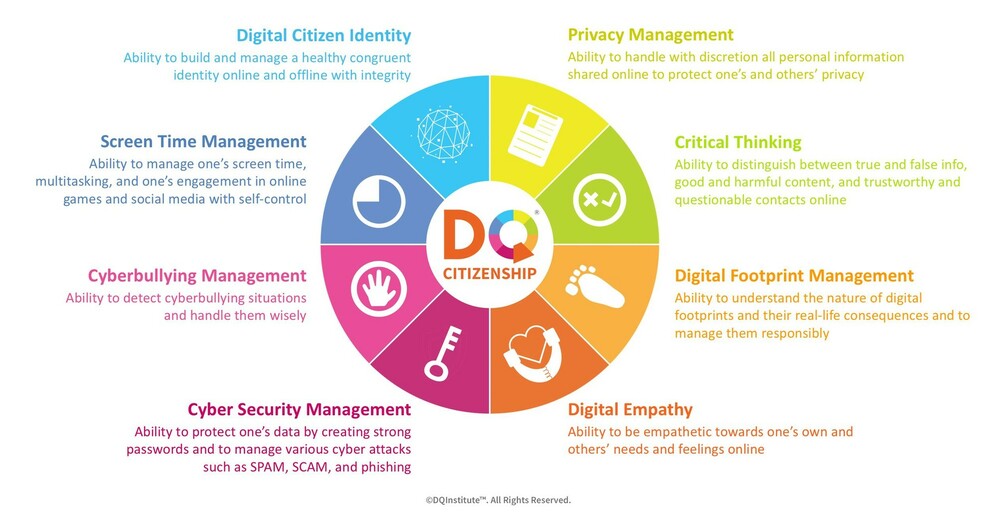
What is Digital Citizenship?

At its base, digital citizenship is rooted in traditional citizenship. The underlying values of citizenship serve to inform and guide digital citizenship.
However, digital citizenship presents nuances and considerations that are complex in nature.
Key points:
- Citizenship requires working to high moral principles.
- Citizenship requires balancing personal empowerment and responsibility with community well-being.
- Citizenship requires participation.
- Citizenship requires education.
- Citizenship is ever-evolving and thus requires ongoing conversation and debate.
- Citizenship must be inclusive.
- Citizenship has close linkage with media advancement.
- Citizenship is intimately tied to community.
The term digital citizenship creates a new form of citizenship.
While it builds upon the concepts of citizenship, subtle characteristics and nuances are part of this newer form.
In Schools:
• Educational administrators will promote, model and establish policies for safe, legal and ethical use of digital information and technology.
• Teachers will develop and model cultural understanding and global awareness by engaging with colleagues and students of other cultures using digital-age communication and collaboration tools.
• Students will demonstrate personal responsibility for lifelong learning.
Digital citizenship policies tend to focus on student learning and student needs. Rather than attempting to control student behaviour as found in acceptable use policies, the emphasis is on how to teach students to work, live and share in digital environments.
A fundamental assumption is that students will be using online technologies as part of learning to prepare for life in a globalized connected society.
*adapted from Digital Citizenship Policy Development Guide, Alberta Education, 2012.







